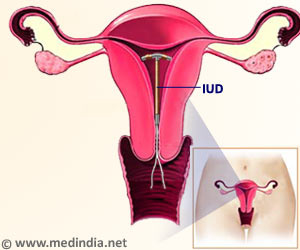Increased level of anxiety may lead women with ductal carcinoma in situ (DCIS) to overestimate their risk of recurrence or dying from breast cancer.
A study by researchers has cited that increased level of anxiety may lead women with ductal carcinoma in situ (DCIS), the most common form of non-invasive breast cancer, to overestimate their risk of recurrence or dying from breast cancer.
The study led by Ann Partridge, M.D, MPH and a breast oncologist at Dana-Farber, has also suggested that has also suggested that many women diagnosed with ductal carcinoma in situ (DCIS) have wrong perceptions of their breast cancer risks."Although DCIS typically is very treatable disease, many women diagnosed with DCIS develop inaccurate risk perceptions. This exaggerated sense of risk needs to be addressed, as it may cause women to make poor treatment choices and adversely affect their emotional well-being and subsequent health behaviors," said Partridge.
The symptoms of DCIS include uncontrolled growth of cells within a breast's milk ducts. There is almost 1 pct risk associated with its spread to other parts in the body, and the risk of it recurring locally is 1 pct after mastectomy and less than 10 pct after breast-conserving surgery.
According to Partridge, the growing number of DCIS cases highlights the need to develop a better understanding of how a DCIS diagnosis impacts women’s emotional health.
The scientists conducted a longitudinal study of women who were recently diagnosed with DCIS to measure risk perceptions and its association with anxiety and depression. Of the 764 eligible participants, 487 completed the initial survey. Women were subsequently surveyed at nine months (426 completed) and at 18 months (392 completed).
At the time of enrollment, 10 percent of patients reported substantial anxiety, and two percent were depressed. Almost more than half of the respondents to the initial survey (55 pct) thought they had at least a "moderate likelihood" of their DCIS recurring within five years of diagnosis, and 68 pct thought it was at least moderately likely to recur within their lifetime. More than one in four (28 percent) responded it was at least moderately likely that the DCIS would spread elsewhere in the body. The participants' risk perceptions remained statistically unchanged over the study’s 18-month span. Over time, anxiety levels decreased, and depression levels remained low.
Advertisement
“Although women with DCIS appear to experience a reasonably favorable overall quality of life, some DCIS survivors may suffer from increased distress and poor mental health that may be related to inaccurate, increased perceptions of breast cancer risks. Clinicians who are caring for the increasing number of women who are diagnosed with DCIS should be aware of these inaccurate perceptions and attempt to minimize them,” said the authors.
According to Partridge the study's findings pose a "chicken and the egg" conundrum.
"Are women with higher anxiety more likely to misperceive their risk, or are women somehow developing inaccurate risk perceptions and thus developing anxiety? I'm not sure that question can be answered at this point,” she said.
She also said that the findings underscore the need and importance of better doctor-patient communications, and the need for further research in this area.
She added: "Some of the anxiety is clearly tied to our society’s fears about breast cancer," explains Partridge, who is also an assistant professor of medicine at Harvard Medical School. "A woman may also have multiple care providers -- medical oncologist, surgeon, plastic surgeon, internist -- and may hear mixed messages about her risks. Improved understanding of DCIS on the part of the medical community may also help women make better, more informed decisions about their care."
The study's findings will be published online by the Journal of the National Cancer Institute.
Source-ANI
SRM/L











